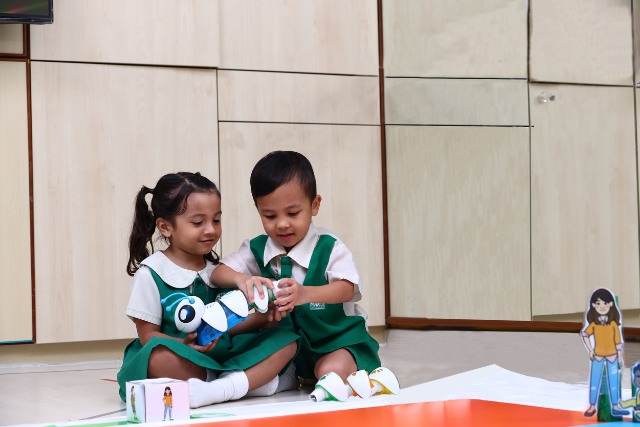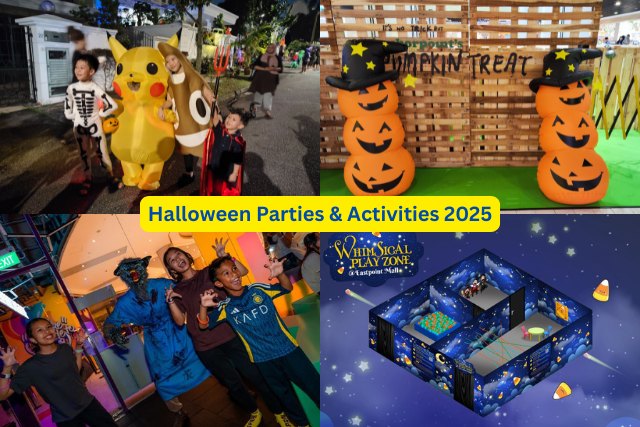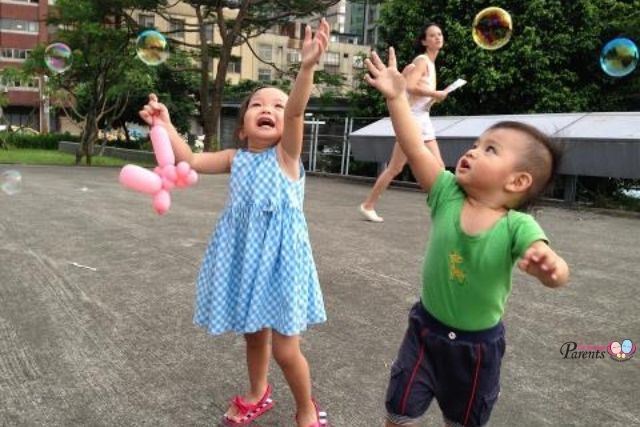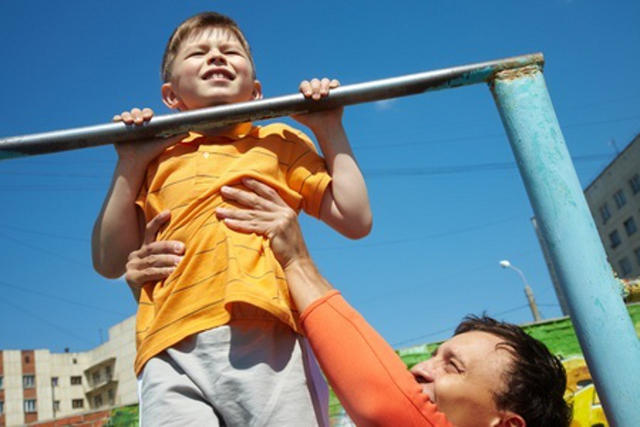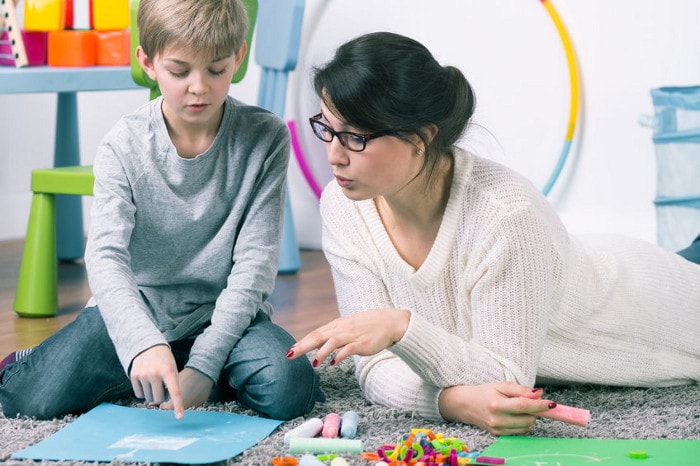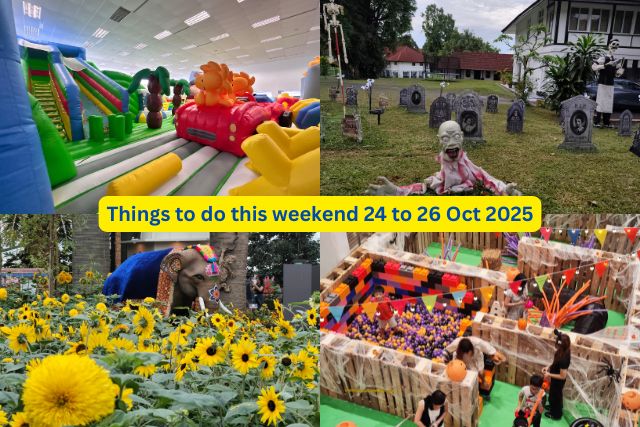Soft skills are a combination of interpersonal, social and communication skills – traits applicable across life situations and job scopes. How can you develop your child’s soft skills?

1. Expose Them To Purposeful Play
Builds: Critical Thinking
In today’s world, children cannot simply rely of rote learning and memory work. It is important for them to be able to analyse, compare and infer information from their surroundings.
Play can be unstructured where children play independently, but purposeful play requires an adult to organise an activity which facilitates their play time, in order to extend or reinforce their learning.
By engaging in purposeful play, these activities help our children learn how to make decisions and to evaluate an issue or problem posed to them. It gives them the hands-on experience to discover, explore and create new devices, or simply add on to existing ones.
With this skill set, children will be more open to trying alternative solutions when they meet with a problem.
2. Let Them Pretend
Builds: Creativity and Imagination
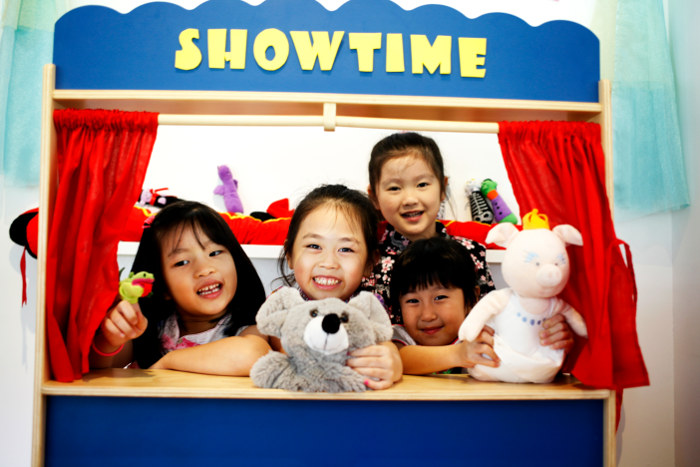
A child’s imagination is limitless. As a key component of creativity, imagination plays a crucial part of every child’s cognitive and social development. To streamline their thinking process, imaginative play or pretend play gives them an opportunity to develop their ideas, as well as creates the opportunity to build a child’s communication and social emotional skills. They are able to express their individuality through their ideas and projects and process information faster as they are able to visualise auditory information.
3. Ask Probing Questions
Builds: Innovation
In the same vein as creativity and imagination, innovation allows them to explore the issue at hand, and to have courage ask “What if?” The best part of innovation is the process of solving a problem, and not necessarily the solution at hand.
Constantly encourage children to innovate by asking probing questions, i.e. “What if we can speak to animals?” or “What makes aeroplanes fly?”. The goal is to invite your child to ask more questions about existing practices, and to think about coming up with their own ideas and solutions.
4. Give Them Opportunities To Share Their Ideas
Builds: Public Speaking and Presentation
In their lifetime, your children will have to communicate, present and persuade others, be it in higher education or in the workforce. During family dinners, give them opportunities to share their thoughts and ideas confidently with family members. Learning to be confident in front of an audience starts at an early age.
Developing public speaking and presentation skills help children to learn to communicate their thoughts and ideas to others in a clear and coherent manner. Do remember to offer praises and give encouragement! This is one skill they can constantly improve on, even in adulthood.
5. Get Your Kids To Play or Work With Other Kids
Builds: Teamwork + Collaboration
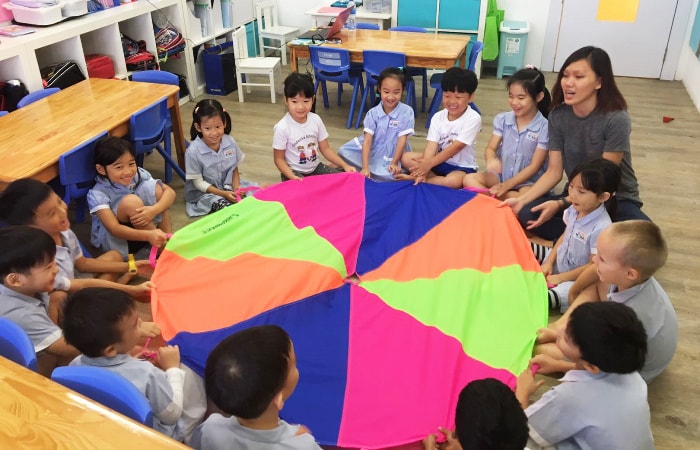
Working in either large or small groups is inevitable whether in school, work or even at home. Understanding the importance of teamwork teaches children that success is achieved through every individual’s effort.
Parents can encourage teamwork by gathering the kids to work together a collaborative project such as building a Lego structure or completing a puzzle.
Teamwork requires them to share their ideas and contribute to providing solutions. In the process, children also learn to receive and give feedback positively, for the general good of the team.
6. It’s Okay To Make Mistakes
Builds: Resilience
Parents must let their children know that it is okay to ask for help in times of trouble, and to make mistakes – that way, it would minimise the chances of their stresses building up. While children may lack the ability to express their frustrations or fears, adults can teach them how to work through the problem positively.
Learning to manage and regulate emotions is an ongoing process to build resilience. This strengthens a child’s ability to bounce back from the stresses of life and become better prepared to meet future life challenges.
Contributed by Pooja Vishindas, Head of Training and Curriculum (Local) at Nurture Education Group (Now Babilou Family).
With over 20 years of early childhood experience, Pooja Vishindas is an expert in early care and education. A former principal in several preschool operators, she obtained her Bachelor of Education (Early Childhood Education) from the University of South Australia and earned a place on the Dean’s Merit list. At present, she is the Head of Training and Curriculum (Local) at Nurture Education Group.
This article was first published in The New Age Parents e-magazine.
* * * * *
Like what you see here? Get parenting tips and stories straight to your inbox! Join our mailing list here.
Want to be heard 👂 and seen 👀 by over 100,000 parents in Singapore? We can help! Leave your contact here and we’ll be in touch.












